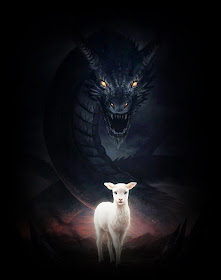φόβος / phobos
It quite simply is fear. Phobos φόβος from which we get the phobias. arachnophobia the fear of spiders or arachnids, homophobia the fear and avoidence of homosexuals, claustrophobia the fear of small confined spaces. The list is endless. I guess more should be said though as there are different types of fear. This is the fear akin to dread. It is the word used often when humans come in contact with the angelic such as the women at Jesus' tomb, Zacharias' encounter in the Temple. and the shepherds in the fields being told of Jesus' birth. The proverbial fear of God. The proper response to encounter with deity or even the supernatural. This 'fear' doesn't always need to have a negative connotation. It can also be a fear that is in reality a 'sense of awe'. Either way, psychologically it can be mentally and phyiscally debilitating. Knowing Who and What God is should have us in both states of fear. Absolute awe/reverence and fear of what He is capable of. One needs only see the effect angelic beings had on humanity to understand the sheer enormity of what one would be confounded by in the presence of God. Ironically, the one thing that will dispel fear is perfect love.
References: Matthew 28:4, Luke 1:12, 1 Peter 4:18




